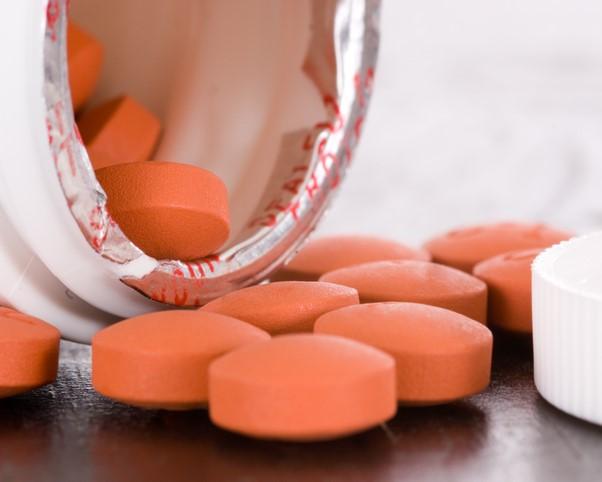Contrary to early reports, the use of nonsteroidal anti-inflammatory drugs (NSAIDs) such as ibuprofen is not associated with severe COVID-19 disease or death, according to a cohort study published yesterday in PLOS One.
Researchers analyzed data from all 9,236 Danish residents who tested positive for SARS-CoV-2, the virus that causes COVID-19, from Feb 27 to Apr 29, of whom 248 (2.7%) had filled a prescription for an NSAID in the 30 days before their diagnosis. In Denmark, a prescription is needed for obtaining NSAIDs, except for low-dose (200-milligram) ibuprofen.
Relative risks among users, nonusers
There were no significant differences between NSAID users and non-users in terms of 30-day death rate (6.3% of NSAID users vs 6.1% of non-users), hospitalization (24.5% vs 21.2%), or intensive care unit (ICU) admission (4.9% vs 4.7%).
Matched analyses showed that NSAID users were no more likely than non-users to die within 30 days (relative risk [RR], 1.02) or to require hospitalization (RR, 1.16), ICU care (RR, 1.04), mechanical ventilation (RR, 1.14), or dialysis (RR, 0.86). An RR of 1 indicates a neutral risk.
Compared with non-users, NSAID users were older (median age, 55 vs 49 years) and more likely to be overweight or obese (13% vs 9%), have medical indications for NSAID use such as osteoarthritis (19% vs 12%) or rheumatoid arthritis (7% vs 3%), and have been prescribed opioids in the previous year (24% vs 11%). Use of opioids was strongly tied to use of NSAIDs and death by 30 days, while cardiovascular disease and dementia were negatively associated with use of NSAIDs but positively associated with death.
The results did not change when follow-up was extended to 60 days or when the researchers included NSAID prescriptions written as long as 60 days before COVID-19 diagnosis.
Indications, cautions
Ibuprofen is widely used to treat pain and fever, two common COVID-19 symptoms. It has been shown in rat—but not human—studies to increase expression of the cell protein angiotensin-converting enzyme 2 (ACE2), which allows coronaviruses to enter target human cells.
A Mar 11 research letter and subsequent case reports suggested that the use of drugs such as NSAIDs, ACE inhibitors, and ACE2 receptor blockers (ARBs) upregulates ACE2, facilitating COVID-19 infection and leading to severe outcomes in humans.
These reports led to widespread concern about these drugs among providers, patients, and agencies such as the World Health Organization, which issued and then retracted a recommendation to avoid the use of ibuprofen in COVID-19 patients.
The PLOS One study authors said their findings may be explained by several possibilities, including that NSAIDs may not boost levels of ACE2 in humans, ACE2 may not increase the risk of severe COVID-19, and that previously reported deleterious effects of NSAIDs in patients with pneumonia may have been specific to only bacterial (not viral) infections.
They also cautioned that some of their study subjects may have been misclassified as NSAID users because they had a prescription but did not fill it or take the drugs.
Still, "considering the available evidence, there is no reason to withdraw well-indicated use of NSAIDs during the SARS-CoV-2 pandemic," the authors wrote. "However, the well-established adverse effects of NSAIDs, particularly their renal, gastrointestinal, and cardiovascular effects, should always be considered, and NSAIDs should be used in the lowest possible dose for the shortest possible duration for all patients."





















